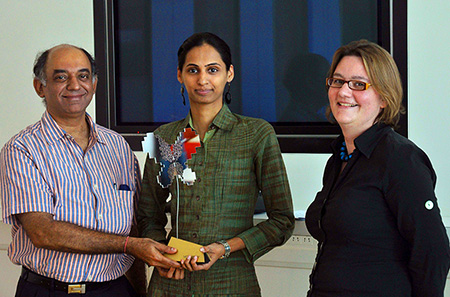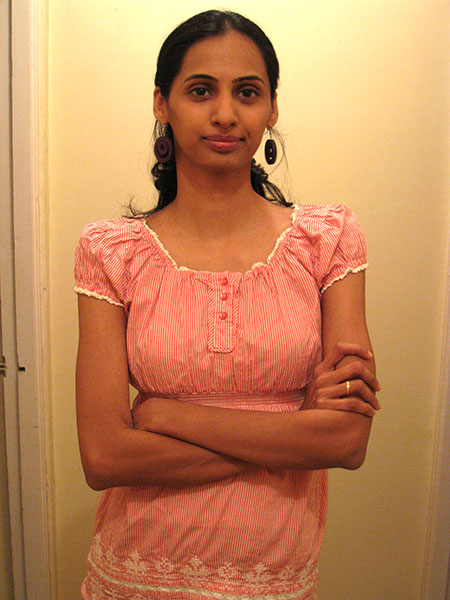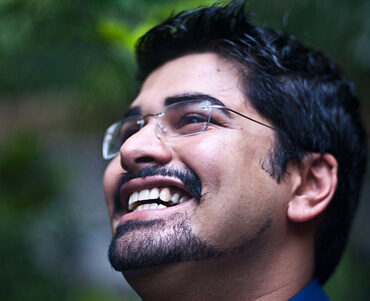Naysayers prophesise the death of Hindustani classical music. However, some art forms are too beautiful to bow out, gracefully or otherwise, and their fan following does not wane. Meet Aishwarya Natarajan, the director of Indianuance, an artist management, P.R., and concert programming firm that aims to bridge the gap between Hindustani classical musicians and their audience. A recipient of the British Council Young Creative Entrepreneur (Y.C.E.) Music Award in 2011, Aishwarya spoke to us about running an independent artist management company in India, amongst other things. Read on for excerpts—
Congratulations on winning the British Council Y.C.E. award! Could you give me an idea of what life was like for you before Indianuance?
Indianuance is only a year old. I moved to Bombay in July 2009, but before that I worked with record labels in Delhi. Initially, I worked in A&R with Music Today (part of the India Today Group), where I helped resurrect the defunct Carnatic division. Later, I held a joint A&R and marketing job at SaReGaMa. The mandate was to set the Wellness & Spirituality genre for them, but as this section was not fast moving, we got to experiment with a very new space in music, which is public area music.

Aishwarya Natarajan, winner of the British Council Y.C.E. Award with Atul Churamani and Collette Weston.
How did this experience shape your career?
The public area music project was a rather big one for the I.T.C. heritage hotel. After weeks of research, we were able to recommend classical music from SaReGaMa’s existing repertoire and programme live music to be played in the hotel. This research thought us about the way music influences mood and ambience in a public space.
During the five years that I worked with labels, we worked with a lot of independent bands, that’s when I actually interacted with some band managers. I was able to lay my hands across various genres and build invaluable experiences during this time. I remember certain Carnatic performer telling me how they wished someone would manage them. At that time, I didn’t really know much about what management really entails but I think it was one of the subliminal ideas that stayed with me.
From the perspective of labels as a business and having worked with musicians from other genres, what is the attitude towards classical musicians?
I realised that classical musicians were treated differently from other musicians. Though I always thought that if one was to compare, they ought to receive more respect. It could have been because of a cultural sensibility, a mindset, money matters; it’s a whole bunch of things. Also, since these artists were managed by friends or students and they didn’t know of any better, they were often exploited.
Could you elaborate on that?
Well, all classical musicians have been exploited, right from the olden days. This is because even current classical musicians are not savvy and they would sign contracts without knowing what they are getting into, what rights they were giving away, and whether or not they were being paid their due. I have witnessed this by being on the music label side, though I wouldn’t blame the label; everything is a business for them. Besides it’s not like they did something without telling the artist, but artists and managers need to pay more attention to the contract details.
As a connoisseur of the classical art form, what is your opinion of fusion? Do you promote it?
Classical [music] does come together with fusion and I do work with it in certain cases where fusion is an important element. However, I do not condone the wanton use of this genre, simply because it sells. The word ‘fusion’ has been misused so much, often it means nothing but a few drums thrown in. Artist must have the sensibility to understand that they’re joining two beautiful forms of music and trying to create something bigger; the sum of the two parts has to be more.
I’m all for fusion, if marketed and packaged well. I especially like the kind of fusion where each style is distinct but the performance together is a fusion. A perfect example of good fusion is The Qawwali Flamenco, recorded by a French label; which comes together beautifully, as the two distinct styles find some middle ground.
What role does Indianuance play?
Via Indianuance, we intend to bring two things to the table. The first is introducing professionalism into artist management; this is purely for the artists’s benefit, so that the artists and their art are treated with respect, and organisations realise that they cannot exploit them. Professionalism is a key factor; it is one of the main deliverables of what we do.
Our second goal is to expand classical music’s reach beyond India; to have more and more foreigners taking to various forms of music, through crossovers or International festivals. Don’t you wonder why more people don’t download classical music off iTunes or listen to classical [music] on the radio? I don’t think the interest isn’t there, rather there’s a latent demand that needs to be energized and marketed. We try to make this music reach out to more people, through innovative programming, by showcasing concepts differently and by adding more musicians. Basically, classical music needs a facelift.

“It is an extremely good time for classical music.”
What approach have you adopted in dealing with the artists you manage?
We treat our artists with a great deal of respect. When we speak about ideas and discuss concepts, we generally share a very friendly dialogue with the artists. I’m several years younger than most of the artists I work with but it’s nice to see that they talk to you in a very professional way, they respect you and listen to you. It’s an informal exchange that we intend to keep as professional as possible. A lot of artists need direction; we provide that in a comfortable manner without sounding pompous, and while admitting that the artists know the art better than we do. What we do is basically repackage their music.
We would also like artists to understand and choose their contracts better. The artists ought to know what they’re worth and that they’re legally safeguarded. They need to know about new platforms and figure out whether the valuation made of their music is right or not. Sometimes artists accidently undercut themselves or close deals that aren’t good; we would like to change that. I don’t expect it to happen overnight; this will take time, it’s a slow process.
How does the market for classical music look at the moment?
For a long time everything was reeling from the recession and people were worried about investing. But, recently people seemed to have renewed interest in classical music; it’s sort of in vogue again. A strange example of this is advertisements; a lot of ads on T.V. have a very classical background score or jingle. In my opinion, classical music is making a comeback; in India, organisers are doing their own bit and corporates are investing, too. It is an extremely good time for classical music.
What about in international markets?
With the shared British history and huge Indian diaspora, the U.K. proves to be an appropriately mature market. Tremendous market potential is also seen in Switzerland, France, Germany, and several E.U. nations. U.S. markets have been considerable easy to get into and have been targeted before. Through the British Council Y.C.E. award, I hope that I am able to network with several bands, organisers, institutes, managers, etc. and thus gain passage for Indian classical music to Europe. This gap needs for be bridged urgently, as Hindustani classical seems to be missing out. For example, there’s a festival called the World Sacred Music Festival, which has never featured Indian classical music. Imagine that! What sort of a world sacred music festival doesn’t have the most sacred of all music? So it exists and we exist, but the gap is yet to be bridged.
From a business point of view, how profitable is a profession in Indian classical music?
It’s a myth that professions in Indian classic music are not profitable. However, if one was to compare it to Bollywood, it would seem a poor profession. But both professions are very different, so why compare?
Lastly, how do you feel to be the first women entrepreneur and first classical music entrepreneur to win the British Council Y.C.E. award?
Until my second or third interview, I didn’t know that I was the first woman to have won the award. And it really doesn’t make a difference; it just makes for good publicity. But, I am extremely happy that Hindustani classical stands to gain something from this, because past awardees have been able to make a big difference in the public space through the award. It is, indeed, a very good time for classical music.








